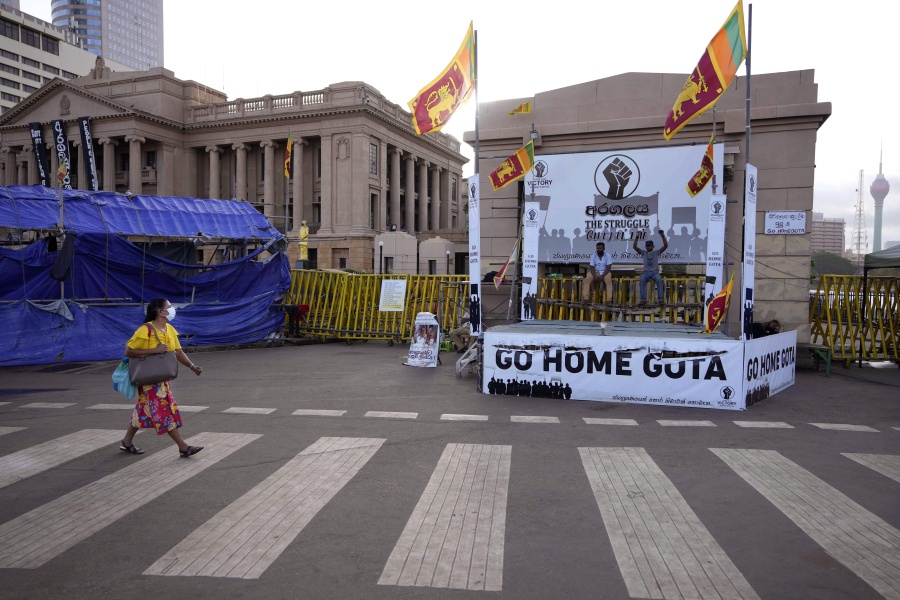COLOMBO, Sri Lanka — Sri Lanka’s prime minister was sworn in Friday as interim president until Parliament elects a successor to Gotabaya Rajapaksa, who fled abroad and resigned after mass protests over the country’s economic collapse.
Lawmakers were to convene today to begin choosing a new leader who would serve the remainder of Rajapaksa’s term, which ends in 2024.
A tenuous calm returned to the capital of Colombo on Thursday after protesters who had occupied government buildings retreated, but with the political opposition deeply fractured, a solution to Sri Lanka’s many problems seemed no closer.
As people celebrated in the streets, Parliament Speaker Mahinda Yapa Abeywardana promised a swift and transparent political process that should be done within a week.
The new president could appoint a new prime minister, who would then have to be approved by Parliament. After Rajapaksa resigned, pressure on the prime minister, Ranil Wickremesinghe, was rising.
In a televised statement, Wickremesinghe said he would initiate steps to change the constitution to curb presidential powers and strengthen Parliament, restore law and order and take legal action against “insurgents.”
It was unclear to whom he was referring, although he said true protesters would not have gotten involved in clashes Wednesday night near Parliament, where many soldiers reportedly were injured.
“There is a big difference between protesters and insurgents. We will take legal action against insurgents,” he said.
Wickremesinghe became acting president after Rajapaksa fled Sri Lanka on Wednesday, flying first to the Maldives and then to Singapore. The prime minister’s office said Wickremesinghe was sworn in Friday as interim president by Chief Justice Jayantha Jayasuriya.
Meanwhile, Sri Lanka’s opposition leader, who is seeking the presidency, vowed to “listen to the people” and to hold Rajapaksa accountable.
In an interview with The Associated Press from his office, Sajith Premadasa said that if he wins the election in Parliament, he would ensure that “an elective dictatorship never, ever occurs” in Sri Lanka.
“That’s what we should do. That is our function — catching those who looted Sri Lanka. That should be done through proper constitutional, legal, democratic procedures,” Premadasa said.
Sri Lanka has run short of money to pay for imports of basic necessities such as food, fertilizer, medicine and fuel for its 22 million people. Its rapid economic decline has been all the more shocking because, before this crisis, the economy had been expanding, with a growing, comfortable middle class.
The protests underscored the dramatic fall of the Rajapaksa political clan that has ruled Sri Lanka for most of the past two decades.
The Rev. Jeewantha Peiris, a Catholic priest and protest leader, said the country had “come through a hard journey.”



